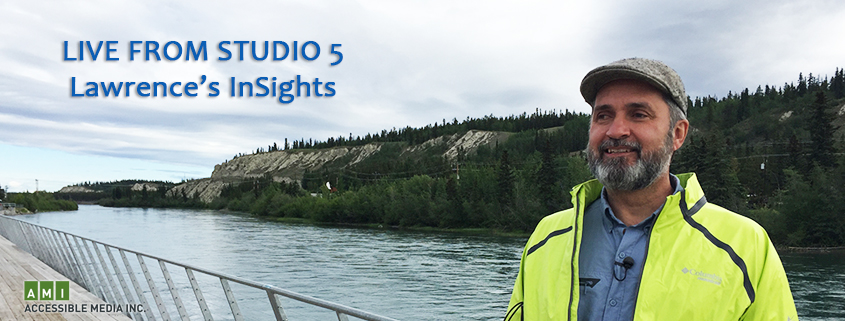
Indigenous Tourism
First Nations people across Canada are undertaking increasingly more economic activities to generate wealth. Self-governance means becoming socially and economically sustainable. One way First Nations communities are generating wealth is by investing in indigenous-inspired Eco-tourism.
(Transcript of Lawrence Gunther’s bi-weekly 12-minute segment on Live from Studio 5 broadcast over AMI TV and Audio across Canada)
Q. Welcome back Lawrence, when did Eco-tourism first become popular in Canada?
A. Following the Second World War and the rapid expansion of industrial growth throughout North America, U.S. citizens and Canadians found themselves with the cash and opportunity to venture out of their home communities. RV camping became popular, and fishing and hunting lodges popped up throughout Canada. RVing was all about discovering new places, and going fishing or hunting with a group of friends became an annual event. More recently, canoe tripping and hiking, more of the human powered forms of exploring, became popular.
Q. How has Eco-tourism changed over the years?
A. Gas prices and the cost of trucks and RVs has made the RV lifestyle less accessible to the average family. Guys that use to go on their annual fishing and hunting trips are now in their 60’s and when one isn’t able to go for health reasons, it usually means the end of a tradition for all involved. The people that use to canoe camp and hike are now busy raising families and paying mortgages and no longer have the opportunity to venture outdoors on weekends. Millenniums are less interested in making long term commitments to pursue the same activities year-after-year, and are more interested in trying new things. In general, people just have higher expectations thanks in part to all-inclusive vacations.
Q. Why are First Nations communities choosing to take up Eco-tourism as a business?
A. From first contact, First Nations peoples have been generous with their resources. They believe in sharing, and have often served as guides for others interested in navigating the wilderness. As they now seek to settle long-standing disputes over property rights, they are once again returning to their traditional practice of stewarding the land, water, fish, animals and birds. This includes the practice of welcoming outsiders and the provision of hospitality.
Q. How does indigenous Eco-tourism differ from what others offer?
A. Many wilderness lodges are moving to include experiences like bird and animal watching, canoeing, mountain biking, etc. in addition to their more consumptive related services such as hunting and fishing. First Nations operations take it one step further by including storytelling, the demonstration of traditional practices like the gathering of wild foods, sweat lodge ceremonies, and the passing of knowledge about how to respect and take responsibility for the land and water.

